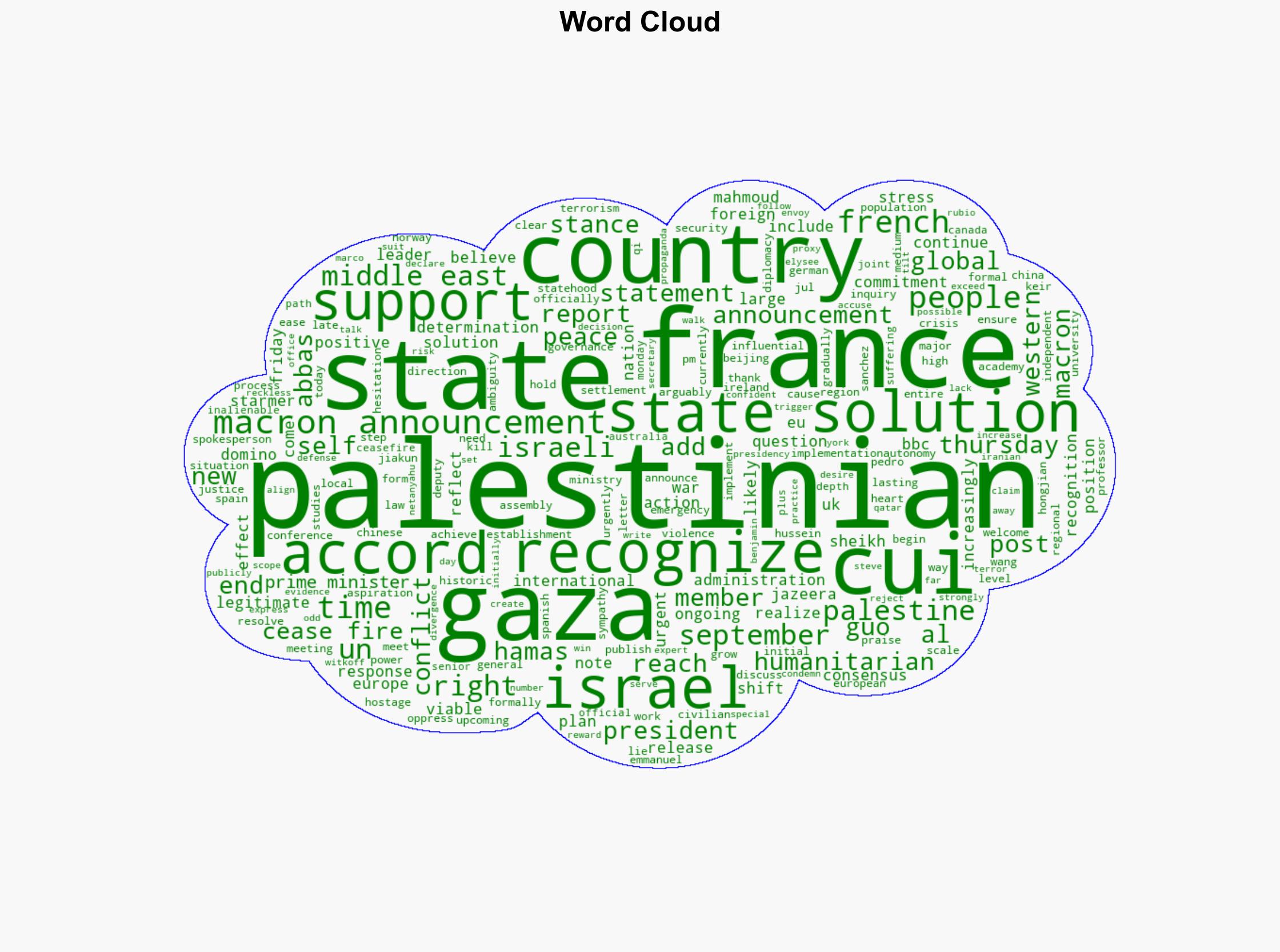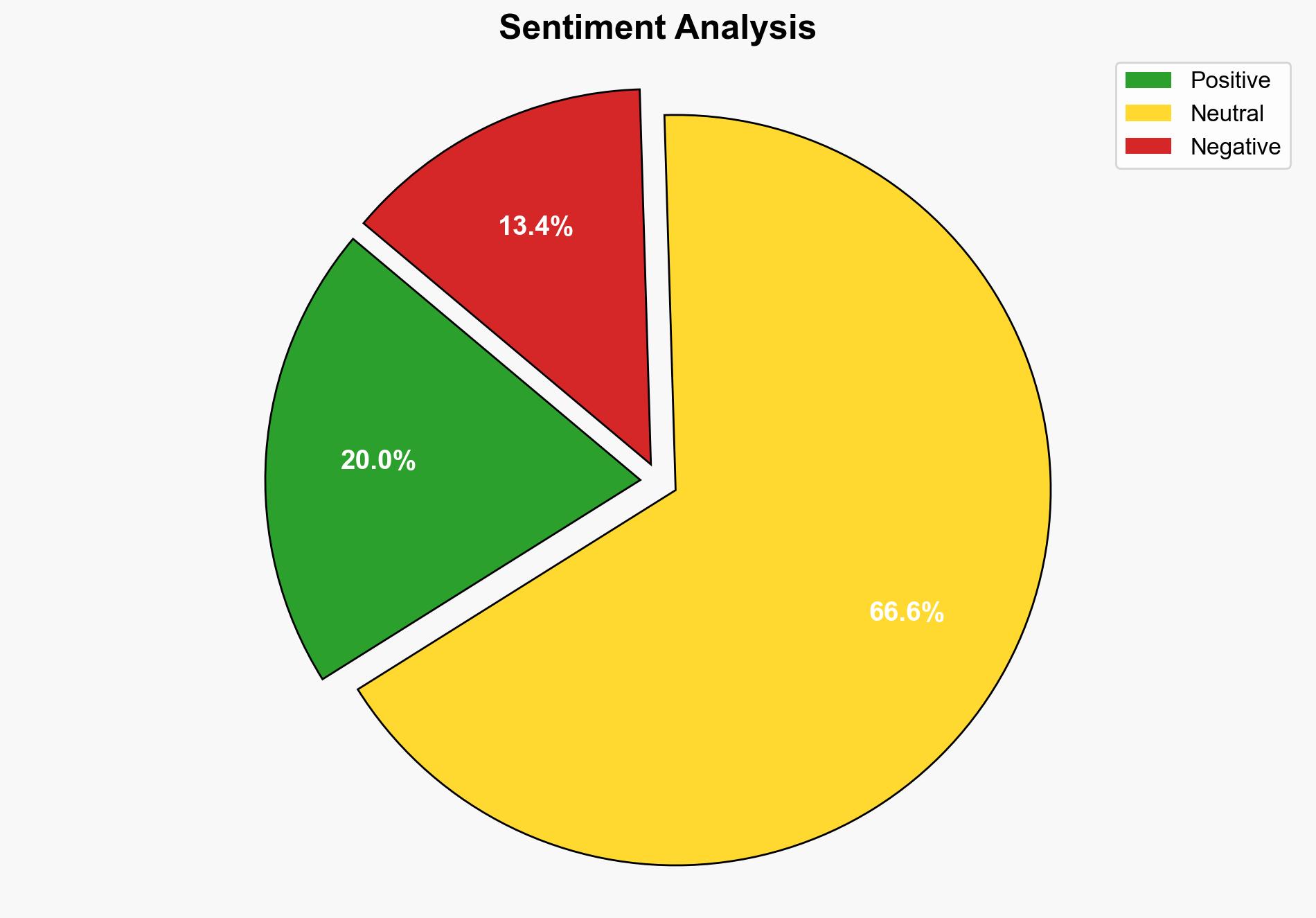France announcement of recognizing Palestinian state ‘may cause domino effect’ – Globalsecurity.org
Published on: 2025-07-26
Intelligence Report: France announcement of recognizing Palestinian state ‘may cause domino effect’ – Globalsecurity.org
1. BLUF (Bottom Line Up Front)
The announcement by France to recognize the Palestinian state could potentially trigger a domino effect, leading to increased international recognition of Palestine. This report evaluates two primary hypotheses regarding this development. The hypothesis that France’s recognition will lead to a significant increase in international support for Palestine is better supported by current evidence. Confidence level: Moderate. Recommended action: Monitor subsequent diplomatic actions by EU member states and other global powers to assess shifts in international policy.
2. Competing Hypotheses
1. **Hypothesis A**: France’s recognition of the Palestinian state will lead to a domino effect, with multiple countries following suit, significantly altering the geopolitical landscape in favor of Palestinian statehood.
2. **Hypothesis B**: France’s recognition will have limited impact, with few countries changing their stance due to existing geopolitical alliances and pressures, resulting in minimal change in the status quo.
Using ACH 2.0, Hypothesis A is more supported due to the public support from other European leaders and the historical tendency of EU countries to align on foreign policy matters. However, Hypothesis B remains plausible due to the complexity of Middle Eastern geopolitics and potential resistance from countries with strong ties to Israel.
3. Key Assumptions and Red Flags
– **Assumptions**: It is assumed that EU countries will prioritize diplomatic alignment and that France’s influence will sway other nations. There’s also an assumption that the recognition will directly translate into policy changes.
– **Red Flags**: Potential overestimation of France’s influence on non-EU countries. The possibility of backlash from countries with strong pro-Israel stances is not fully explored.
– **Blind Spots**: The internal political dynamics within countries that might prevent them from recognizing Palestine despite external pressures.
4. Implications and Strategic Risks
– **Geopolitical**: A shift in recognition could escalate tensions in the Middle East, affecting peace negotiations and regional stability.
– **Economic**: Potential economic sanctions or trade implications for countries shifting their stance.
– **Psychological**: Increased polarization within international communities and potential for heightened activism or unrest.
– **Cyber**: Possible increase in cyber activities targeting nations involved in the recognition process.
5. Recommendations and Outlook
- Monitor diplomatic communications and public statements from EU and non-EU countries for shifts in policy.
- Engage in dialogue with key EU leaders to gauge their positions and potential actions.
- Scenario-based projections:
- Best Case: Broad international recognition leads to renewed peace talks and regional stability.
- Worst Case: Increased tensions lead to conflict escalation and economic sanctions.
- Most Likely: Incremental recognition with limited immediate impact but potential long-term shifts.
6. Key Individuals and Entities
– Emmanuel Macron
– Mahmoud Abbas
– Hussein al-Sheikh
– Pedro Sanchez
– Keir Starmer
– Guo Jiakun
7. Thematic Tags
national security threats, geopolitical shifts, Middle East peace process, international diplomacy




